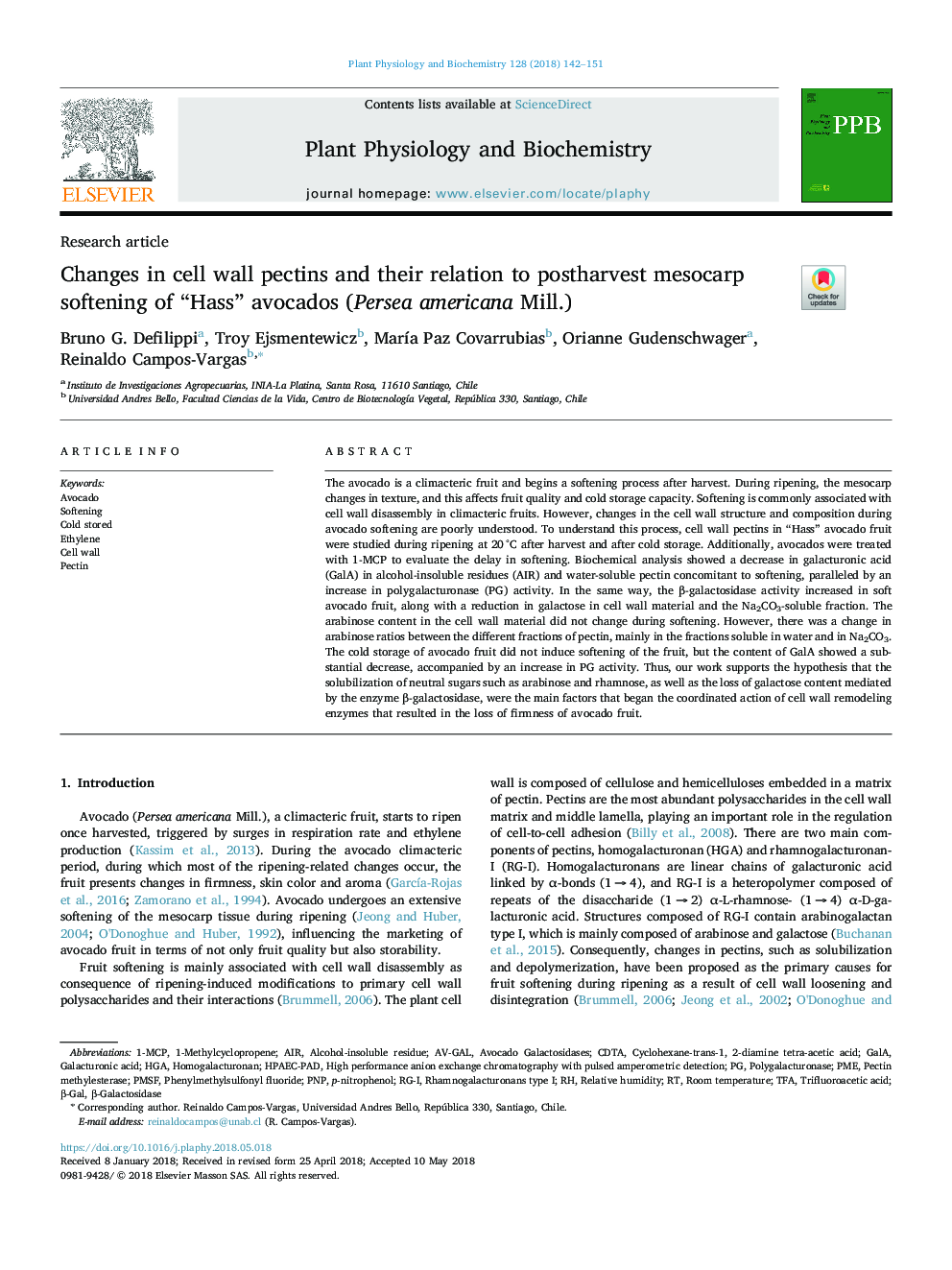| Article ID | Journal | Published Year | Pages | File Type |
|---|---|---|---|---|
| 8352914 | Plant Physiology and Biochemistry | 2018 | 10 Pages |
Abstract
The avocado is a climacteric fruit and begins a softening process after harvest. During ripening, the mesocarp changes in texture, and this affects fruit quality and cold storage capacity. Softening is commonly associated with cell wall disassembly in climacteric fruits. However, changes in the cell wall structure and composition during avocado softening are poorly understood. To understand this process, cell wall pectins in “Hass” avocado fruit were studied during ripening at 20â¯Â°C after harvest and after cold storage. Additionally, avocados were treated with 1-MCP to evaluate the delay in softening. Biochemical analysis showed a decrease in galacturonic acid (GalA) in alcohol-insoluble residues (AIR) and water-soluble pectin concomitant to softening, paralleled by an increase in polygalacturonase (PG) activity. In the same way, the β-galactosidase activity increased in soft avocado fruit, along with a reduction in galactose in cell wall material and the Na2CO3-soluble fraction. The arabinose content in the cell wall material did not change during softening. However, there was a change in arabinose ratios between the different fractions of pectin, mainly in the fractions soluble in water and in Na2CO3. The cold storage of avocado fruit did not induce softening of the fruit, but the content of GalA showed a substantial decrease, accompanied by an increase in PG activity. Thus, our work supports the hypothesis that the solubilization of neutral sugars such as arabinose and rhamnose, as well as the loss of galactose content mediated by the enzyme β-galactosidase, were the main factors that began the coordinated action of cell wall remodeling enzymes that resulted in the loss of firmness of avocado fruit.
Keywords
β-galRG-ICDTAPMSFPNPHGAHPAEC-PADTFA1-MCPPolygalacturonase1-methylcyclopropenep-NitrophenolAvocadoEthyleneTrifluoroacetic acidGalacturonic acidalcohol-insoluble residueβ-galactosidaseRoom temperatureCell wallRelative humidityPMEphenylmethylsulfonyl fluoridePectin methylesteraseSofteninghomogalacturonanAIRPectinhigh performance anion exchange chromatography with pulsed amperometric detectionGalA
Related Topics
Life Sciences
Agricultural and Biological Sciences
Plant Science
Authors
Bruno G. Defilippi, Troy Ejsmentewicz, MarÃa Paz Covarrubias, Orianne Gudenschwager, Reinaldo Campos-Vargas,
